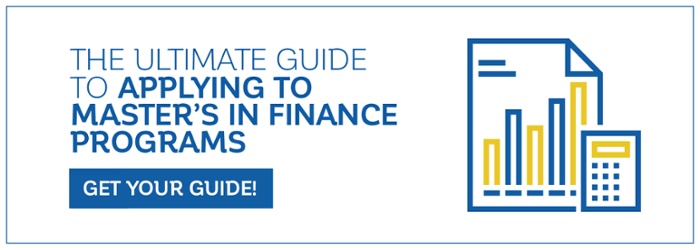

Your undergrad GPA and GMAT or GRE score are pillars of your Masters in Finance (MFin or MSF) application. What can you do to integrate these elements – whether high, average, or low – effectively in your application? Follow these 4 steps to evaluate your scores for your Masters in Finance application.
1. Understand How Masters in Finance Adcoms Evaluate Your GPA and GMAT/GRE
The GPA and GMAT/GRE test scores are viewed holistically by the adcom, but it’s still important to understand how these elements complement each other in the evaluation process.
• GPA: While the overall GPA is important, the admissions committee seeks strength in quantitative courses. So, if you are a history major with a 3.75 GPA overall but 3.1 in your few quant courses, the adcom may question your quant ability. If you’re an econ major with a 3.2 overall, but A’s in rigorous quant courses, the 3.2 will be mitigated by the quant grades – the adcom will not doubt your quant ability. If your overall GPA is low but trends up, the adcom will likely weight those later years more (especially if they include tough quant courses). On the other hand, a significant downward trend may require an explanation and be hard to overcome.
• GMAT/GRE: You should have a strong quant score in either test. “Strong” for the most competitive programs means above 90%; and it’s above 80% roughly for others. The verbal score matters, but it needn’t be fabulous. For test prep, focus primarily on getting your quant score as high as possible.
Remember, a very high quant score or grades can somewhat mitigate less than desirable results in the other. (If they’re both low, perhaps you should reevaluate MFin plans, at least at top programs.)
2. Evaluate Your GPA and Test Scores
Given the above, evaluate your own GPA and test impression. Determine relative strengths and weaknesses. Is it overall great, overall worrying, a mix of both? Is it “okay” all around? Each of these scenarios presents its own challenges (yes, even “overall great”) for your masters in finance application strategy.
3. Determine Mitigation Steps if Necessary
You can’t change your GPA, but if it needs mitigating, first, as noted above, go all out in test prep, and score as high as possible. The following actions may help:
• Consider taking a relevant online course or two and earning A’s. While you may not have time to finish it before applying, you can mention it in optional essays.
• Similarly, participate in the CFA program. The Level 1 test includes some quantitative content along with other directly relevant material; a “pass” will not prove you are a mathematical genius but will contribute to a profile of quantitative competence.
• Make sure multiple parts of your application reflect your ability to use sophisticated quantitative methods during internships or jobs.
• Ask recommenders to describe your quantitative strengths and capabilities.
4. Use Your Grades & Test Scores to Guide Your School Research
Compare your GPA and test scores to those of admitted students in MFin programs. Not all schools thoroughly detail this information, but if you examine “student profiles” in school websites, you will see where your GPA and scores place you competitively.
View our Masters in Finance Application Package for step-by-step guidance through the admissions process. Work one-on-one with me or one of the my expert admissions consultant colleagues…and get ACCEPTED to your top-choice MFin program!

 Cindy Tokumitsu has advised hundreds of successful applicants, helping them gain acceptance to top MFin, MBA and EMBA, and other graduate management programs in her 15+ years with Accepted. She would love to help you too. Want Cindy to help you get Accepted? Click here to get in touch!
Cindy Tokumitsu has advised hundreds of successful applicants, helping them gain acceptance to top MFin, MBA and EMBA, and other graduate management programs in her 15+ years with Accepted. She would love to help you too. Want Cindy to help you get Accepted? Click here to get in touch!
Related Resources:
• Fitting In and Standing Out: The Paradox at the Heart of Admissions, a free guide
• How to Get Accepted to Masters in Finance Programs
• Should You Take the GMAT or GRE Exam?


